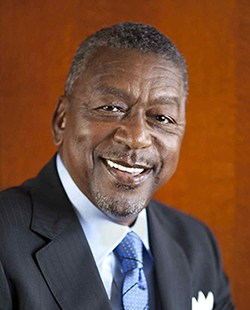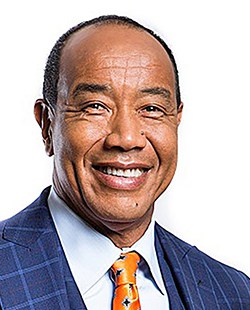The beginning of a new millennium was also the year that the Forbes list first had Black billionaires. In 2001, Robert L. Johnson and Michael Lee-Chin became the first people of African descent to clear the billion-dollar wealth mark. Out of 538 total persons or families to make the magazine’s much-watched annual list that year, Johnson ranked #312 with a net worth of $1.6 billion and Lee-Chin ranked #490 with a net worth of $1 billion. Johnson, an American born in Mississippi, and Lee-Chin, a Jamaica-born naturalized citizen of Canada, took quite different paths to their fortunes. Each man’s story provides some insight into the types of assets that build and maintain wealth.

Bob Johnson is best known as the co-founder (along with his ex-wife Sheila Johnson) of Black Entertainment Television (BET)–the first cable network with programming tailored for a predominantly Black American audience. The Johnsons founded BET through an interesting mix of public broadcasting, civil rights connections and lobbying for what was then called the National Cable & Telecommunications Association, the principal trade association for the emerging cable industry. Using his contacts Bob Johnson managed to get satellite time for the new network and a half-million dollars to start Black Entertainment Television.
Starting in 1980 with only two hours weekly of programming, Johnson grew BET into a major network reaching more than 61 million homes by 2000. The result of this massive growth attracted high valuations and a subsequent $3 billion sale to Viacom. The Viacom sale netted Johnson nearly $1.6 billion and a place among the world’s billionaire class. Johnson’s post-BET ventures would not keep him on the Forbes billionaire list for more than a few years, with his last appearance in 2004. Johnson put his share of the BET sale into a diversity of big ideas. He founded DC Air in 2001–a proposed airline in quasi-partnership with United Airlines–that ultimately never received regulatory approval. Had DC Air received approval, it would have made Johnson the first person of minority background to own a major airline in the United States. Johnson also purchased the NBA expansion franchise Charlotte Bobcats (now known as the Charlotte Hornets) in 2002, making him the first Black American owner of a major professional sports franchise in American history. More recently, he founded the RLJ Companies through which he has purchased stakes in companies in a variety of industries and locales. Although these acquisitions yielded mixed results, it was ultimately the lackluster performance of Viacom’s stock and other investments that precipitated his fall out of the billionaire class.
Michael Lee-Chin was born in Jamaica with Black and Chinese ancestry. Lee-Chin would make his fortune after moving to Canada. Majority white nations like the US and Canada are where global wealth is still most concentrated, making them lands with great opportunity for radical wealth accumulation. The US in particular is regularly the nation home to the most billionaires.

Although academically trained as an engineer, Lee-Chin transitioned into finance at age 26. Through significant returns on a few shrewd investments in his adopted homeland, Lee-Chin acquired a small Ontario-based investment firm called Advantage Investment Counsel Limited (AIC). When Lee-Chin bought the firm in 1983, AIC had $800,000 under management. By 2001 he had grown AIC so dramatically that he himself had an individual net worth of $1 billion. By 2003, AIC had grown its portfolio to more than $15 billion in assets under management. Lee-Chin had by then sold AIC, using the profits from the 2009 sale to found a private equity firm called Portland Holdings. Through Portland Holdings, Lee-Chin acquired majority stakes in one of the largest banks in the Caribbean — National Community Bank Holdings, Inc. (NCB) – and other ventures throughout the West Indies including his native Jamaica. His NCB investments in the Caribbean keep him among the billionaire class as of 2023.
In 2001 the emergence of two Black billionaires was historic but also reflected the reality of a global racial wealth divide. The two barrier-breakers represented 0.4% of the world’s total billionaires on the 538-person list that year. The population of sub–Saharan African by itself is 15% of the world’s population. To say that Blacks are greatly under-represented in the elite billionaire class severely understates the problem. Bob Johnson, as the richest Black person in the world in 2001, had about 1% of the wealth of the world’s richest man at that time, fellow American Bill Gates. Bill Gates by himself had about 50x the wealth of all two Black billionaires.
Bob Johnson, the first US Black billionaire, also represents a US trend where most Black billionaires stem from the entertainment industry. Michael Lee-Chin represents two future trends among Black billionaires: the strong economic portfolio of Black billionaires in finance, and a growth of Black billionaires whose wealth derives from investment in majority Black countries. Michael Lee-Chin and Bob Johnson were once the only two Black billionaires. Today, that headcount is almost 20 – significant growth, but still a relatively small representation of Blacks among the most elite of economic spaces, reflecting a deep racial wealth divide that is global in scope.
Dedrick Asante-Muhammad is Chief of Organizing, Policy and Equity at NCRC.
Eddie Gray is an Organizing, Policy and Equity Graduate Intern at NCRC.


